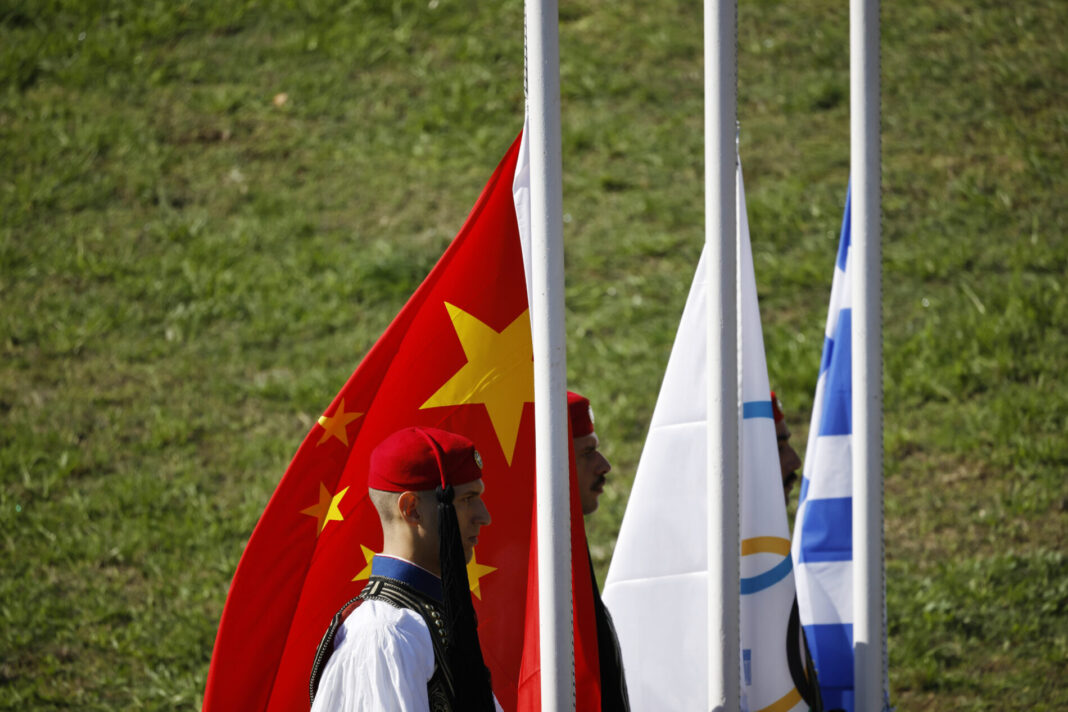The Chinese investment in Piraeus has been challenging the geopolitical equilibrium in Europe. However, will European leaders be strong enough to balance the need of a trade partnership with China and the safeguard of political, environmental and economic stability?
The acquisition of 51% stake of Athens Piraeus port by Chinese state-owned COSCO in 2016 was the first step of a well-envisioned plan to turn it into a major distribution hub for Central, East and South-East Europe, including the Black Sea region (Van der Putten, 2014, 4). In October 2021 COSCO acquired an additional 16% stake in Piraeus Port Authority (P.P.A.) raising the company’s stake to 67% (COSCO Shipping, 2021).
With a revenue of $14 billion in 2021 COSCO is one of the largest container carriers worldwide, operating 11.6% of the world liner fleet (Statista, 2022). The Shanghai-based giant invested in Piraeus to extend its control over the shipping industry. However, economics is only one driver for China, willing to access the European market and technical expertise (Van der Putten, 2014, 19).
Drivers of the operation are clear, but outcomes involving Greece and Europe in the foreseeable future are uncertain. Despite the optimism of Greek Minister of Investment and Development Adonis Georgiadis, stakeholders raised economic, political and environmental worries.
Chinese investment affected the Greek economic system, undermined after the financial crisis of 2008, that took Greece on the edge of bankruptcy. After the economic distress, the loss of investments was enormous, and the country did not succeed in attracting new foreign investors, whose monetary injections could salvage the Greek economy. Under these circumstances COSCO closed a deal with the Athens Government, taking major control over two piers of the Piraeus port in exchange for economic benefits, such as an increase in containers’ throughput from 1 million to 5.4 million TEU in 2020 (Koutantou, 2021).
The Chinese approach encouraged COSCO’s and other companies’ investments and the huge money inflow in Piraeus made the port the new commercial ‘rising star’ of the Mediterranean, with an impressively quick rise from number 77 to number 46 in the list of the top 100 global container ports, with still a huge margin for growth. (Van der Putten, 2014).
Economic reliance easily turns into political dependency: as Derek Scissors from the American Enterprise Institute indeed said, “If you become unhappy with the Chinese presence […] you are now stuck” (Laughlin, 2022). The lack of alternatives creates political leverage. As The Guardian showed, the political sway has pushed Greece, as other EU members, at times to oppose statements and policies that seemed aggressive to China. In 2017, Greece has indeed blocked EU’s criticism of China’s human rights record at the UN (Smith, 2017). The political sway turns, it is argued, into a security risk: the takeover of critical infrastructure keeps NATO officials up at night (Schultz, 2020). In addition, according to a report by the Asia Society Policy Institute, China is driving a worrying militarization of the BRI, driven by the creation of dual-use infrastructure and a deepening civil-military integration overseas (Russel & Berger, 2020). Chinese ownership of major European ports, which for the Zeebrugge’s Port has even reached 85% of shares, should alarm Brussels.
Objectors of investment in the Piraeus also blame China for dumping European environmental law, polluting the fishing area with toxic waste (Boutsi, 2021). Suspected violations brought out conflicts between potential benefits and drawbacks stemming from the operation. Sources of the Piraeus Port Authority stated that the Chinese management authorities lacked the requisite knowledge of compliance processes, viewing them as a bureaucratic box-ticking exercise (Bloom, 2021). This deal has heightened worries in the EU about China’s growing engagement in European infrastructure, and it has generated dissent due to environmental and social issues, and China’s unfulfilled investment commitments (Varvitsioti, 2021). Therefore, the EU plans to include sustainability as a key component of its foreign investment screening procedure to aid host governments in ensuring Chinese actors’ compliance with local norms, controlling expectations and improving the environmental effect of these projects (Tsimonis et al., 2019).
Undoubtedly, Chinese investment in Piraeus has been challenging the geopolitical equilibrium in Europe. However, will European leaders be strong enough to balance the need of a trade partnership with China and the safeguard of political, environmental and economic stability?
With a revenue of $14 billion in 2021 COSCO is one of the largest container carriers worldwide, operating 11.6% of the world liner fleet (Statista, 2022). The Shanghai-based giant invested in Piraeus to extend its control over the shipping industry. However, economics is only one driver for China, willing to access the European market and technical expertise (Van der Putten, 2014, 19).




